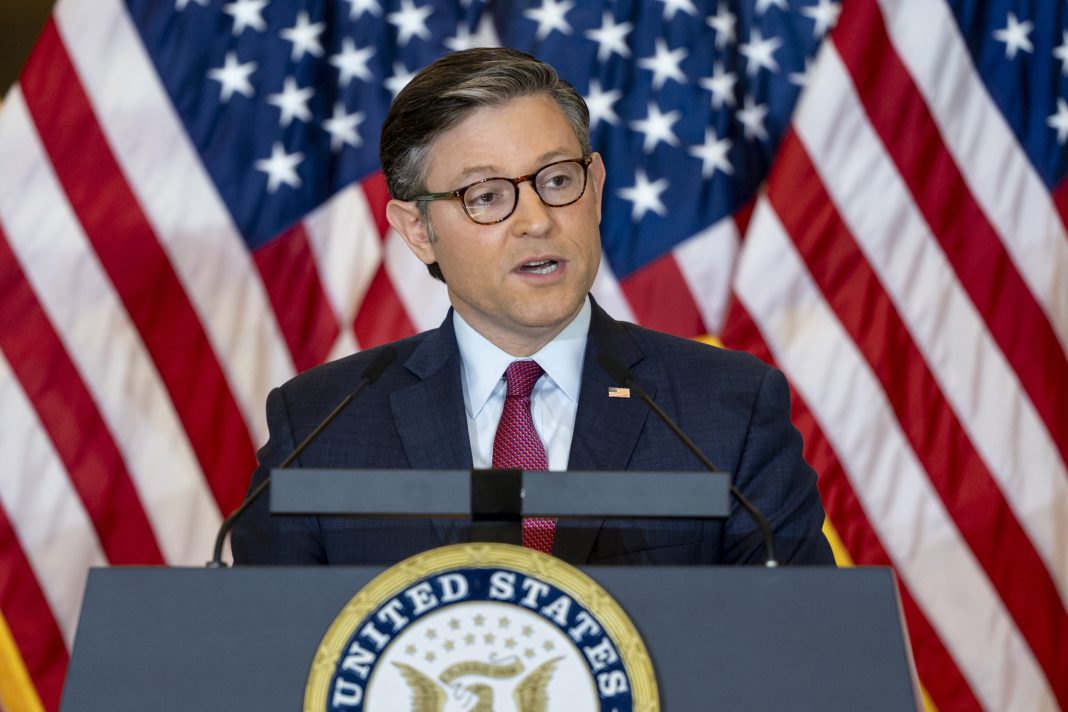In a move that could significantly impact the upcoming holiday season and the political landscape, the House Rules Committee made a pivotal decision on Monday by choosing not to vote on a short-term spending bill designed to prevent a government shutdown. This decision puts House Speaker Mike Johnson (R-La.) in a challenging position, necessitating cooperation with Democrats to advance a contentious measure that many within his own party oppose.
Johnson’s proposed three-month continuing resolution (CR), which aims to keep the government funded through December 20, was anticipated to be part of a broader package approved by the GOP-controlled rules committee. However, dissent from several Republicans thwarted its consideration. One notable critic, Rep. Thomas Massie (R-Ky.), expressed concerns that Johnson’s strategy might lead to a funding crisis just before Christmas, a tactic he believes could coerce lawmakers into supporting a bill negotiated “behind closed doors.” In his comments on social media, Massie articulated his frustrations, questioning the timing and intent of the funding strategy. “Why Christmas? So he can pressure Members to vote for a bill they haven’t read, by using their desire to see their families on Christmas Eve against them,” he remarked, underscoring the tension within the Republican ranks.
Massie’s sentiments reflect a broader unease among conservatives regarding the proposed CR. He advocated for a more stable solution, suggesting, “We should fund the whole thing for a year,” a sentiment that resonates with many who favor long-term fiscal responsibility over temporary fixes. This internal strife highlights the ongoing ideological battle within the GOP, where fiscal conservatism clashes with strategic political maneuvering.
With no rule in place, House GOP leadership is expected to pursue an alternative route to bring the spending bill to the floor, utilizing a procedure known as “suspension of the rules.” This method requires a two-thirds majority to pass, complicating matters further given the slim Republican majority in the House. House Majority Leader Steve Scalise (R-La.) has indicated that the continuing resolution is slated for a vote on Wednesday, but without substantial Democratic support, its future remains uncertain.
Johnson’s predicament has become increasingly complex, particularly after his initial proposal—a six-month CR linked to a contentious requirement for voters to show proof of citizenship—was decisively rejected. This first attempt saw 14 House Republicans join a majority of Democrats in voting it down, illustrating the significant pushback the Speaker faces even from his own party. In a letter to his colleagues, Johnson expressed the gravity of the situation, stating, “While this is not the solution any of us prefer, it is the most prudent path forward under the present circumstances.” His acknowledgment of the potential political fallout of a government shutdown—especially with a critical election on the horizon—underscores the high stakes involved.
As the clock ticks down to the potential shutdown, the implications of these political maneuvers extend beyond mere budgetary concerns. A government shutdown could disrupt essential services, affect federal employees, and create a ripple effect that reaches into the economy just as families prepare for the holiday season. Recent studies indicate that government shutdowns can lead to decreased consumer confidence and spending, further complicating an already tenuous economic recovery.
In summary, as House Speaker Mike Johnson navigates this legislative quagmire, the interplay of internal party dynamics and the necessity of bipartisan cooperation will be pivotal. This situation serves as a reminder of the complexities of governance in a divided Congress, where the pressures of political expediency can clash with the fundamental responsibility of funding the government. As lawmakers prepare for what could be a tumultuous few weeks, the outcome of this spending bill will not only determine the immediate fiscal future but also set the stage for the political battles that lie ahead in the new year.

